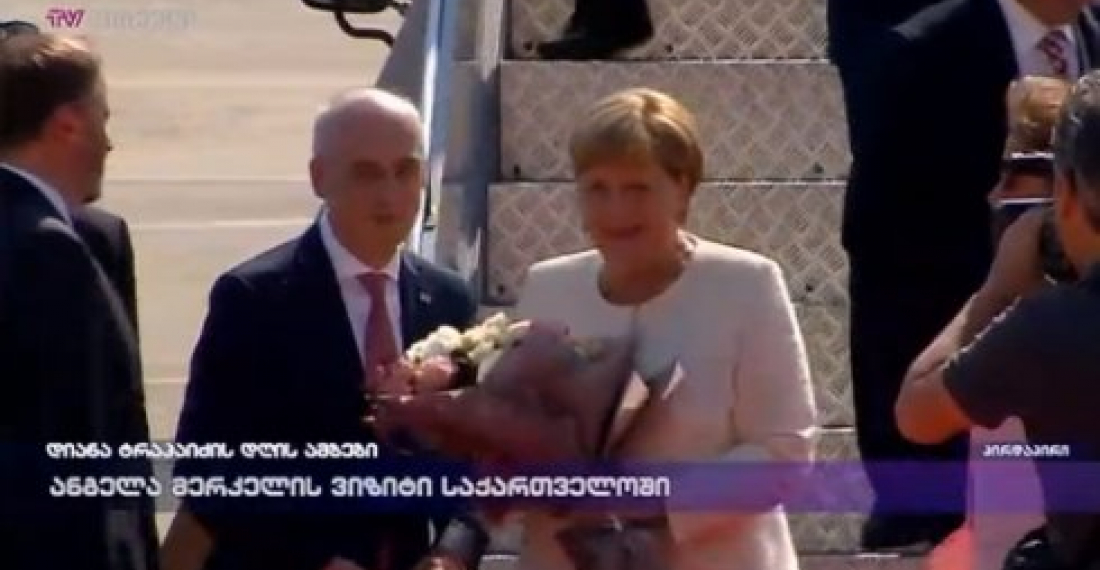The German Chancellor, Angela Merkel has arrived in Tbilisi at the start of a regional tour which will see her visiting also Armenia and Azerbaijan.
On arrival in the Georgian capital Merkel was welcomed by Foreign Minister, David Zalkaliani and other Georgian officials, before proceeding to the building of the Georgian State Chancellory where she will meet with Prime Minister Mamuka Bakhtadze.
Commonspace.eu political editor said that "the visit of the German Chancellor comes at a time when in Germany there is a big ongoing debate on the future role of the country in the international arena, with many suggesting that Germany needs to play a bigger role in areas of Europeasn security and in the European neighbourhood. The visit to the South Caucasus is therefore extremely timely. Germany has good relations with all three countries, but complications in bilateral relations exist as well. Among these is the high number of Georgians involved in criminal activity in Germany, and the blacklisting of a German MP by Azerbaijan because of a recent visit to Nagorno-Karabakh. There is however widespread respect for Merkel in the region, and this will contribute towards the success of the visit."
source: commonspace.eu
photo: Angela Merkel arriving in Tbilisi at the start of a tour of the three South Caucasus countries on 23 August 2018. (picture screen grab from Georgian TV)







